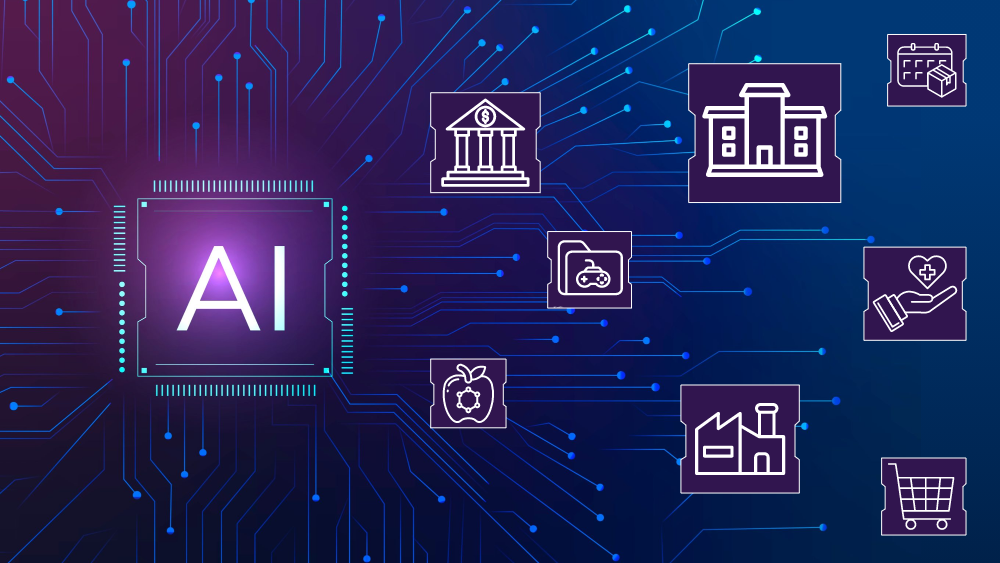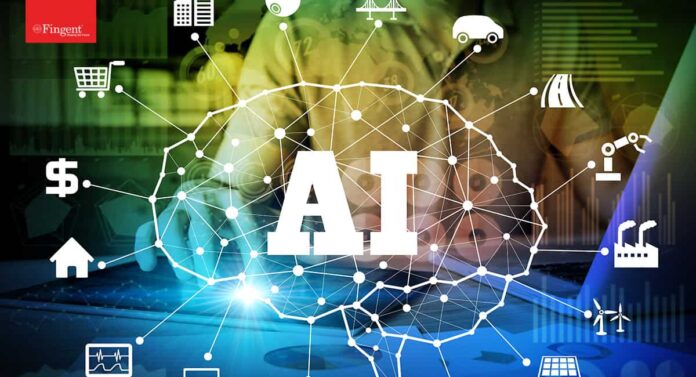Introduction
Artificial Intelligence (AI) has emerged as a groundbreaking technology that is revolutionizing numerous industries and transforming the way we live and work. From healthcare and manufacturing to finance and entertainment, AI is being harnessed to drive innovation, enhance efficiency, and create new opportunities. This article explores the multifaceted impact of AI on various sectors and highlights the potential it holds for shaping the future.
AI in Industries
1. Healthcare
AI is revolutionizing healthcare by enabling advanced diagnostics, personalized treatment plans, and drug discovery. Machine learning algorithms can analyze vast amounts of medical data to detect patterns, predict diseases, and assist in clinical decision-making. AI-powered robots and virtual assistants also enhance patient care and improve operational efficiency in healthcare facilities.
2. Manufacturing
In the manufacturing sector, AI is optimizing production processes, improving quality control, and enhancing supply chain management. Smart robots and automation systems powered by AI are streamlining manufacturing operations, reducing costs, and increasing productivity. AI-enabled predictive maintenance helps prevent equipment failures and minimize downtime.
3. Finance
AI is transforming the financial industry by automating tasks, improving risk assessment, and enhancing customer experiences. AI algorithms can analyze financial data to detect fraudulent activities, make investment predictions, and personalize financial advice. Chatbots and virtual assistants provide real-time support to customers, simplifying banking operations.
4. Transportation
AI is reshaping the transportation sector with autonomous vehicles, traffic management systems, and predictive maintenance. Self-driving cars powered by AI algorithms offer safer and more efficient transportation. AI-powered algorithms optimize traffic flow and reduce congestion. Additionally, logistics and fleet management benefit from AI-enabled route optimization and demand forecasting.
5. Entertainment
AI is revolutionizing the entertainment industry by enabling personalized content recommendations, immersive virtual reality experiences, and computer-generated special effects. Streaming platforms leverage AI algorithms to curate personalized playlists and recommend relevant movies or shows. AI-powered algorithms also enhance the creation of realistic visuals and animations in movies and games.

AI in Product Development
AI is driving innovation and enabling the development of new products and services. Here are some notable areas:
1. Virtual Assistants and Chatbots
AI-powered virtual assistants and chatbots provide personalized assistance and support across various platforms. These intelligent systems use natural language processing and machine learning algorithms to understand and respond to user queries, enhancing customer experiences and streamlining interactions.
2. Smart Home Devices
AI-enabled smart home devices, such as voice-controlled assistants and connected appliances, enhance convenience and automate household tasks. These devices use AI algorithms to understand user commands, learn preferences, and perform tasks like controlling lights, adjusting thermostats, and managing security systems.
3. Virtual Reality and Augmented Reality
AI contributes to the development of immersive virtual reality (VR) and augmented reality (AR) experiences. AI algorithms enhance visual and auditory components, enabling realistic simulations and interactive environments. These technologies have applications in gaming, training simulations, and virtual tours, among others.
4. Cybersecurity
AI plays a crucial role in cybersecurity by detecting and preventing cyber threats. AI algorithms can analyze large volumes of data to identify patterns, anomalies, and potential security breaches. This helps in early detection and mitigation of cyber attacks, safeguarding sensitive information and systems.
Frequently Asked Questions (FAQs)
1. Will AI Replace Human Jobs?
AI is transforming industries and automating certain tasks, which may lead to job displacement in some areas. However, AI also creates new job opportunities, such as AI developers, data scientists, and AI ethicists. Additionally, AI technology often complements human skills and capabilities, leading to new ways of working and collaborating.
2. Is AI Ethical and Secure?
AI development should prioritize ethical considerations and security measures. Transparent and accountable AI algorithms, data privacy safeguards, and adherence to ethical frameworks help ensure responsible AI implementation. Continuous monitoring and evaluation are necessary to address any biases or unintended consequences.
3. What Are the Limitations of AI?
While AI has made significant advancements, it still has limitations. AI algorithms rely on available data and may struggle with unfamiliar situations or contexts. They may also exhibit biases if the training data is biased. Additionally, AI lacks human-like consciousness and creativity, limiting its ability to replicate certain cognitive abilities.
Conclusion
The rise of artificial intelligence is transforming the world across industries and product development. From healthcare and manufacturing to finance and entertainment, AI is driving innovation, enhancing efficiency, and unlocking new possibilities. It is crucial to embrace AI responsibly, prioritizing ethical considerations and ensuring data privacy and security. By harnessing the potential of AI, we can navigate the challenges and shape a future where technology and human collaboration coexist harmoniously.
============================================


